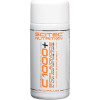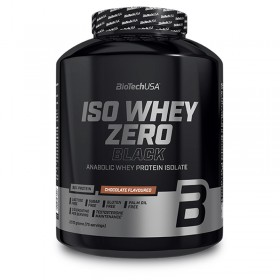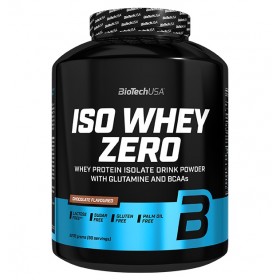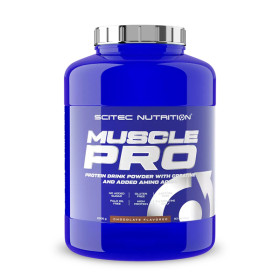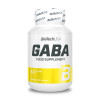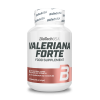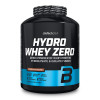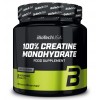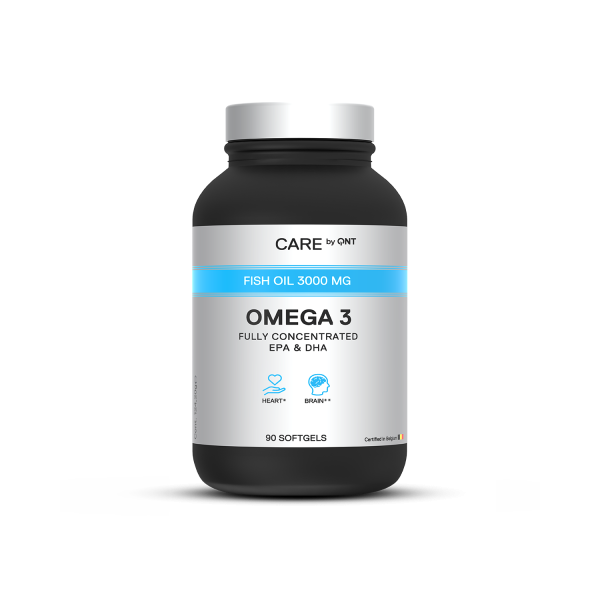
OMEGA 3 - 3000 mg | 90 softgels
- Optimize your mental abilities.
- Support a healthy heart function with our formula.
- Maximum concentration of 1000 mg per capsule
- Ease some inflammatory responses and live in natural balance!

Security policy

Delivery policy

Return policy
Omega-3s are very popular for their numerous beneficial properties for the body. Indeed, these fatty acids, found in fish, eggs, avocados, and nuts, help improve your well-being.
The dosage of 1000 mg per capsule ensures a sufficient daily intake of Omega-3 to fully enjoy all their benefits. Particularly important for active individuals, the oils used in QNT's Omega-3 are cold-extracted from wild fish from Scandinavian fisheries. They are then purified and carefully encapsulated in Belgium using a modern antioxidant process. As you can see, everything has been done to preserve the raw power of nature found in these precious fish oils. Don't wait any longer and start your Omega-3 regimen now to shine with strength and health!
QNT's Omega-3 3000 mg are highly concentrated softgels in omega-3 fatty acids, designed to support your overall health. Carefully manufactured to the highest quality standards and in compliance with current regulations, our capsules offer a practical and effective solution to supplement your diet with essential fatty acids.
Key Benefits:
1. Cardiovascular Support: Omega-3 3000 mg is rich in EPA (eicosapentaenoic acid) and DHA (docosahexaenoic acid), two omega-3 fatty acids known for their ability to help cardiovascular health by maintaining normal triglyceride levels in the blood. They also contribute to maintaining normal blood pressure.
2. Anti-Inflammatory Properties: The omega-3 fatty acids in our capsules seem to have anti-inflammatory properties that may help relieve joint and muscle pain, as well as reduce inflammation throughout the body. Studies are still ongoing to demonstrate their importance in this area.
3. Cognitive Support: EPA and DHA are important constituents of the brain, and studies have shown that their regular consumption may help normal brain function. In case of issues, it could improve cognitive function, concentration, and memory, thereby contributing to better mental health and general well-being.
4. Fat Loss Aid: Omega-3s are often studied for their many potential health benefits, including their impact on fat metabolism. However, research on the specific effects of omega-3 supplements on fat loss is still ongoing and the results are mixed. Additional studies are needed to better understand their role in weight management.
Studies are still being conducted to specify the benefits of omega-3, particularly on brain development in the first 2 years of a child's life, and they seem positive. Omega-3 supplementation appears to be beneficial in many areas and can help when your body lacks it to return to normal triglyceride levels or normal blood pressure, thus aiding your heart function after exertion. Physical exercise sometimes also stimulates the brain and omega-3s could therefore help ensure normal brain function.
It is important to note that omega-3s should be consumed as part of a balanced and varied diet, and supplements are generally recommended only if dietary intake is insufficient. It is always best to consult a healthcare professional before starting to take omega-3 supplements.
Determining the recommended daily dose of omega-3 can vary depending on various factors such as age, sex, health status, and physical activity level of each individual. However, here are some general guidelines to help you understand how much omega-3 you should consume each day:
1. Alpha-Linolenic Acid (ALA): Alpha-linolenic acid (ALA) is an omega-3 found in plant sources such as flaxseeds, chia seeds, walnuts, and canola oil. The recommended daily dose of ALA can vary, but generally, it is recommended to consume about 1.6 grams per day for adult men and 1.1 grams per day for adult women.
2. Eicosapentaenoic Acid (EPA) and Docosahexaenoic Acid (DHA): EPA and DHA are mainly found in fatty fish such as salmon, mackerel, sardines, and herring, as well as in fish oils. For healthy adults, it is recommended to consume about 250 to 500 milligrams combined of EPA and DHA per day.
3. Supplementation: For those who do not consume enough omega-3 from their diet, omega-3 supplements can be an option. It is recommended to consult a healthcare professional to determine the appropriate dose based on individual needs.
It should be emphasized that these recommendations are general and can be adapted to the specific needs of each individual. Furthermore, it is preferable to obtain your omega-3 from a balanced and varied diet rather than relying solely on supplements.
Our omega-3 capsules contain one gram of fish oil. This allows you to dose your intake according to your needs. The recommended dose is 3 capsules per day, which provides you with enough EPA and DHA to meet all your needs.
You might also like
10 other products in the same category:
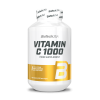
Vitamin C 1000
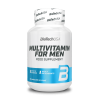
Multivitamin for Men
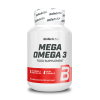
Mega Omega 3
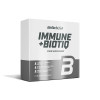
Immune+Biotiq 36 capsules
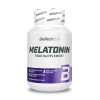
Melatonin 90 tablets
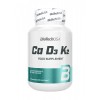
Ca D3 K2 90 caps
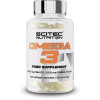
Omega 3 (100 g.c.)
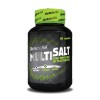
MultiSalt
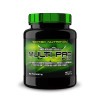
Multi-Pro Plus (30 pak.)
